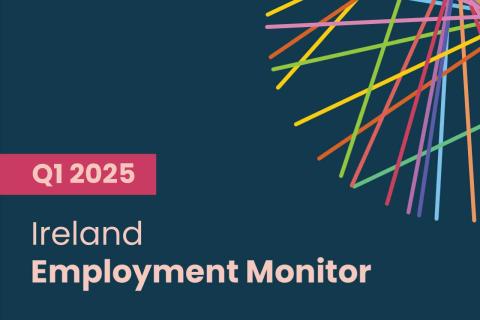Women in Tech - Jessica Flanagan, Deckard Technologies

Jess is passionate about exploring, optimising and creating best practices to develop systems that improve quality and efficiency.

Collaborating with internal and external stakeholders to understand structural requirements and define standards for how data will be stored, consumed, integrated, and managed across an organisation. She is a skilled trouble-shooter continually focused on identifying, isolating and resolving technical issues.
At Deckard Technologies she leads a team of data engineers, who utilise big data in helping local municipalities navigate the sea of incomplete or inaccurate real estate data sets, and provide them with actionable intelligence for the benefit of the community and its citizens.
Where did your interest in technology come from? How did you decide to pursue a career in technology?
I was exposed to technology from almost birth. My father is a software engineer and shared his love for tech early on. He would read programming manuals such as K&R's C book to get me to go to sleep; this provided the added benefit of allowing him to study simultaneously.
By the time I could read and write I was editing the config files on games in DOS so I could beat him. Tech was always around, and I was elbow deep in it at every opportunity. Initially, I tried to resist the computer science route and carve my own path by enrolling in Chemical Engineering at uni, but it was evident by the end of my first year that I should switch to software.
What are the key things that allowed you to get where you are today and what do you attribute your success to?
First, I think it's important to acknowledge my privilege. Having tech around from an early age was significant. Also, my parents both studied during my childhood - mum worked on her masters, dad always had a textbook out - setting me up to see education as a lifelong activity.
In addition to this, I've made a point of not pigeonholing myself. For a while, I was a software engineer; then I moved into security engineering now, my focus is data and technical leadership. I'm continuously learning and challenging myself by extending my skills inside and outside the office.
Making connections is essential both to find opportunities and to expand your knowledge, it's hard to learn in a vacuum. Taking an interest in what other people are passionate about is a great way to find new passions for yourself.
What is the most valuable piece of advice you have received in your career and how did it help you?
The hardest part of getting into the tech industry is starting. It is easy to come up with reasons why not to, but if you're passionate, make the jump.
Amongst hiring managers within the industry, there can be a stigma around those who haven’t completed their computer science degree or attended a less well-known university. I disagree with this mindset, and I believe it to be yet again another barrier to women and other non-traditional candidates.
I would instead encourage any women who want to change careers to do their due diligence and research. Some of the coding boot camps are risky in that they teach students the latest technology; however, they are light on the fundamentals. This becomes a problem when the industry shifts: if you aren’t strong in the fundamentals of computer science, you will struggle to pivot with the rest of the industry. Many major universities offer their core courses for free or heavily discounted via online learning platforms; these are a great way to supplement your hands-on skills.
As you transitioned to more senior and leadership roles what was the shift you needed to make?
I needed to learn to take in the right amount of detail on different tasks. It was tough to loosen my grip and not be involved in every decision. You must trust your team, for both them and you. It's important to empower your team - they need to know that if they make decisions in good faith, you will support them.
Changing how I view my work as valuable was also a tough change. It was hard to start judging my productivity based on management tasks as opposed to tangible output. I'm still very hands-on, but I had to learn to let go of the mentality of jumping in and doing it myself.
What was the most challenging situation you've faced in your career and how did you overcome it?
Starting from Day 1 at Deckard was the hardest, so far.
At established companies, when you start a new project, many of the decisions are already made for you, there is a default tech stack to build on, existing relationships with customers and operations teams. We had to start processing vast amounts of data right away, and none of us had used an external cloud provider before. We needed to learn very quickly and correct mistakes as we went. Everything had to be built from the ground up. There were so many decisions to make, a lot of pressure, and if we got it wrong - we were the ones who were going to have to suffer the consequences.
It was necessary to fall back on software/data engineering fundamentals. We kept everything as modular as possible so if we needed to change course we could. We also tried to be conscious of the times we introduced tech debt when getting a Minimal Viable Product out it’s inevitable, but you need to budget for it in the future. Two years later, we are still hitting challenging times but having a goal we all believe in really helps.
What advice would you give to other females looking to pursue a career in technology?
Imposter syndrome is genuine, don't let it derail you.
Recognise these feelings when they emerge. The first step is always awareness. Instead of telling yourself, you are going to be found out or you don't deserve success, remind yourself it's normal not to know everything and no one feels confident all the time. Accept that sometimes you will be uncomfortable and that probably means you are learning.
Seeking support is important; building a supportive network of peers and mentors is so crucial for your career and personal development. Be proud of your achievements without needing to compare them.
The impact of COVID-19 and ongoing quarantine measures have been felt globally adversely affecting most individuals and organisations. From your perspective what have been the impacts of COVID-19 within the tech industry?
At least in the short term I’ve seen a lot more empathy in the industry. Ways of doing things that seemed fixed were quickly reevaluated. I’m a member of a few leadership in tech groups and I was impressed by how quickly companies thought to shut down offices to protect employee health and then followed that up by putting measures in place to support mental health. I really hope those values stay at the forefront of management minds.
Working from home has been a big shakeup, and I hope that it will lead to companies reevaluating needing staff to be on-site or even in the same city. Employing people from where they want to live could lead to a much more diverse workforce.
Contact our Tech and IT recruitment consultants for a confidential discussion or if you need support finding tech talent.














